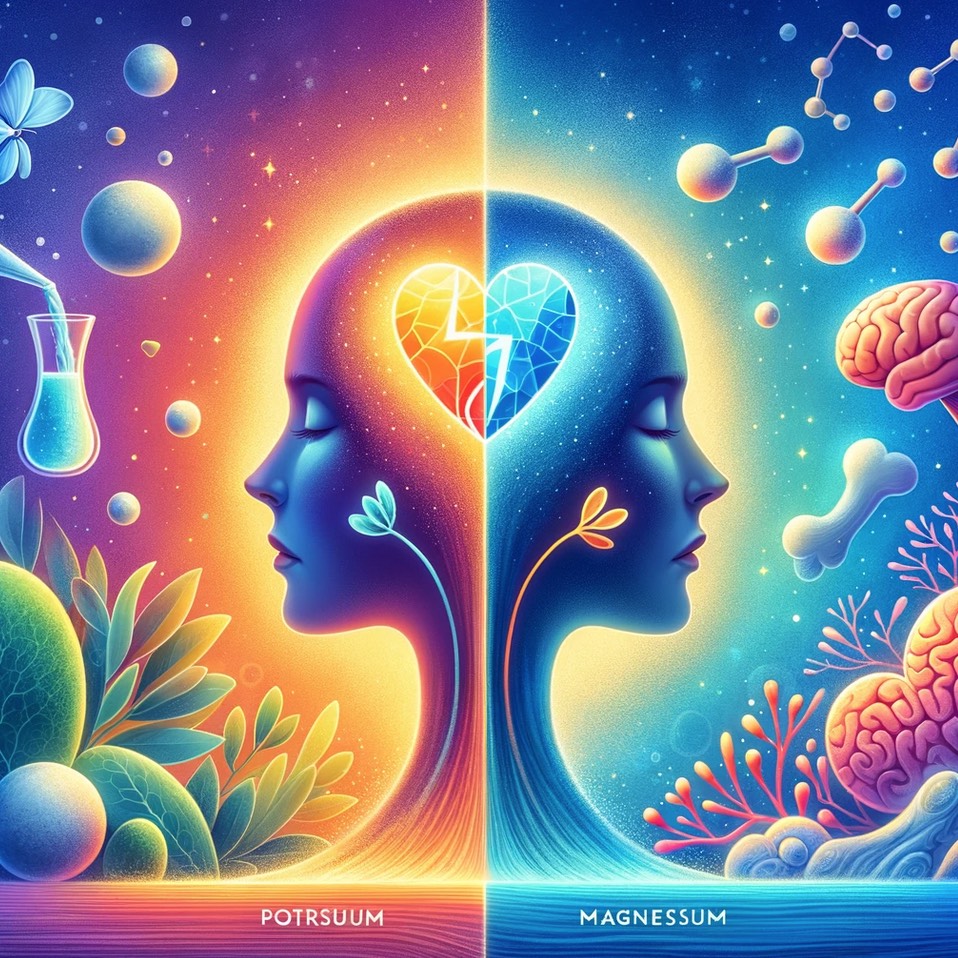In the realm of dietary supplements, potassium and magnesium stand out for their vital roles in maintaining our health. Despite their importance, confusion often surrounds their specific functions and benefits. I bought magnesium capsules instead of potassium out of confusion. So wrote this article which aims to shed light on these essential minerals, detailing how they support our bodily functions and contribute to our well-being.
Potassium: The Heart’s Ally
Potassium is a key player in cardiovascular health. It helps regulate heart rate and ensures smooth muscle and nerve function. By balancing electrolytes and body fluids, potassium is instrumental in maintaining normal blood pressure and preventing stroke.
Our bodies require a substantial amount of potassium daily, which we can typically meet through a diet rich in fruits, vegetables, lean meats, and dairy. However, certain conditions, such as chronic kidney disease, can disrupt potassium balance, making supplementation necessary for some individuals.
Beyond cardiovascular health, potassium aids in muscle function, waste removal, and bone health. It also plays a crucial role in converting blood sugar into glycogen, an energy reserve for our muscles.
Magnesium: The Versatile Mineral
Magnesium is another powerhouse mineral, involved in over 300 biochemical reactions in the body. It is crucial for bone health, calcium absorption, and the production of protein and antioxidant enzymes.
One of magnesium’s standout roles is its contribution to the nervous system. It regulates neurotransmitters, which send messages throughout the brain and body. Magnesium also influences muscle contractions and relaxation, offering relief from cramps and spasms.
The benefits of magnesium extend to mental well-being, too. Studies suggest it can alleviate symptoms of depression and anxiety. Moreover, it plays a part in heart health, regulating blood pressure, and supporting the prevention of heart disease.
While magnesium is abundant in foods like nuts, seeds, whole grains, and green leafy vegetables, many people fall short of their daily requirements, leading to deficiencies. In such cases, supplementation can help bridge the gap.
Distinct Functions, Common Goal
Though potassium and magnesium serve different functions, they share a common goal: supporting essential physiological processes. Potassium is primarily involved in cardiovascular health and fluid balance, while magnesium’s roles are more varied, spanning from nerve function to enzyme production.
Supplementation Considerations
Before starting any supplement regimen, it’s important to consult with a healthcare provider. Overconsumption of potassium can lead to hyperkalemia, characterized by muscle weakness, irregular heartbeat, and in severe cases, heart attack. Similarly, excessive magnesium intake can cause diarrhea, nausea, and abdominal cramping.
The recommended daily intake for these minerals varies by age, sex, and life stage. Typically, adults should aim for 3,500-4,700 mg of potassium and 310-420 mg of magnesium daily, though individual needs can vary.
The Takeaway
Potassium and magnesium are indispensable minerals that support myriad bodily functions. From regulating heart rhythm to ensuring mental well-being, their impact is profound and wide-ranging. While a balanced diet is the best way to obtain these nutrients, supplements can play a key role in addressing deficiencies and supporting overall health.
In conclusion, understanding the distinct yet complementary roles of potassium and magnesium can empower individuals to make informed decisions about their dietary and supplementation needs, promoting optimal health and well-being.







